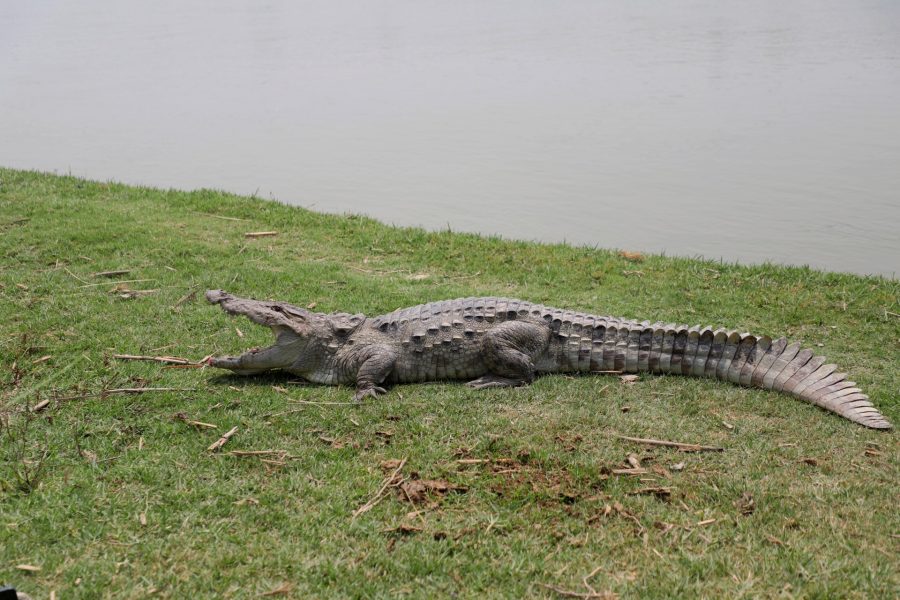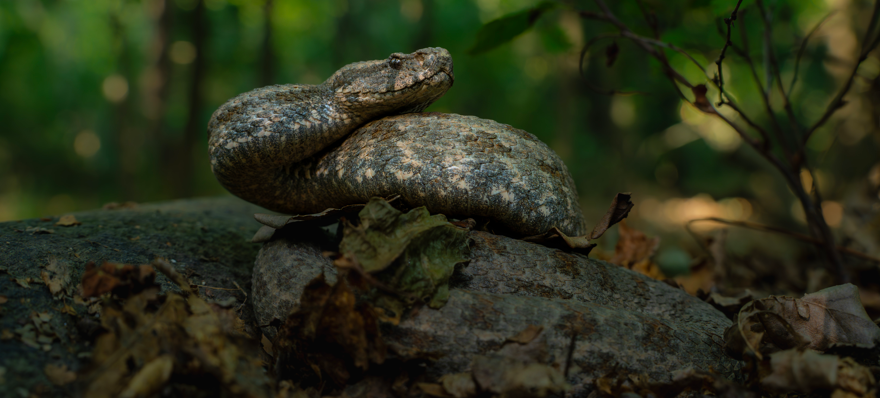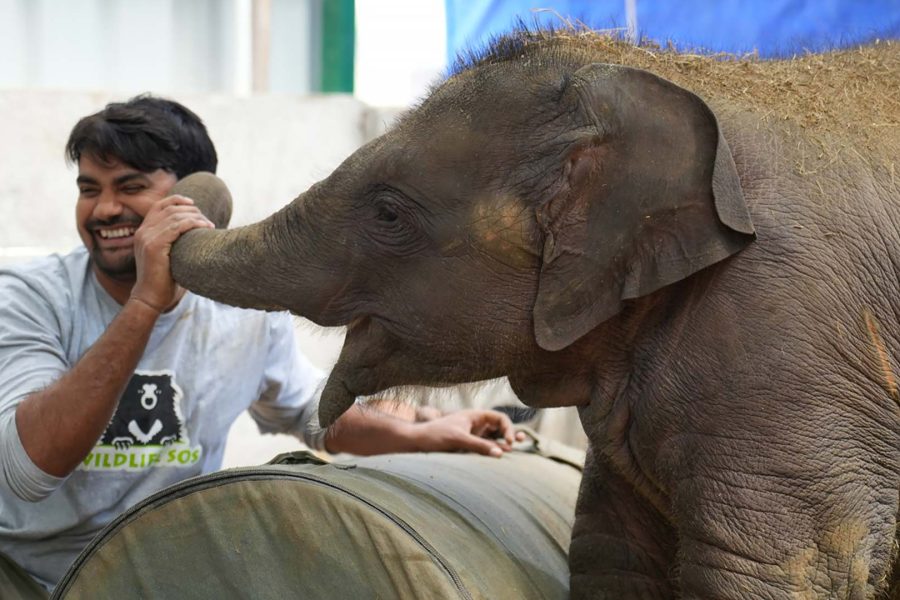By Aaliya Mir

February 7, 2014: Raja and Zara are three-year-old Moon Bears in Pahalgam. Rescued a little less than three years ago, these cubs would not have made it if Wildlife SOS had not intervened. The two siblings were found in the trunk of a hollow Chinar tree in the Tral area of the Shopian Division of Kashmir. The Tral area was notorious for the number of bear attacks and also the number of bears that had been killed. In 2006, the nation was stunned by a video that played on almost all channels showing a bear being burnt alive by the villagers of this area although it had offered no violence and was merely foraging in their orchards.
On this fateful morning, the locals noticed some scratch marks and paw prints around the old Chinar tree and upon investigation found two bear cubs curled up asleep in the hollow, at the base of this enormous old tree trunk. Thanks to the awareness programs run by Wildlife SOS with great restaint, the villagers chose to inform the Wildlife Department about the presence of two bear cubs instead of taking the matter in their own hands.
Chinars are the most ancient trees found in Kashmir and many are still 100-300 years old, while there are Chinar trees in the valley whose age dates back to 500 to 600 years. The tree trunk can very well be several meters across. This tree that gave shelter to the two cubs and their mother had a girth of almost 5 meters. The mother bear found this tree ideal for giving birth to the cubs owing to its large girth and its resemblance to a cave. What this says about the availability or rather non-availability of habitat for black bears in these areas today can easily be conjectured.

The forest department and Wildlife SOS teams decided to leave the mewling bear cubs in the tree trunk and kept a lookout for the mother bear for about three days, but she didn’t come back nor did she attempt to call to the cubs. The Chinar tree where the cubs were found was very close to the district highway which had trucks and cars on it all the time and around it was the village surrounded by apple orchards and houses. Lest the people take a harsh decision such as killing the cubs, it was decided to shift the cubs to Pahalgam rescue center run by Wildlife SOS. After a three-day vigil, the orphaned cubs were taken to the rescue center where the Wildlife SOS team, experienced in raising orphaned and abandoned cubs in the past, took charge of the two-month-old cubs and they were given emergency treatment straightaway. Upon examination, the cubs weighing 3-4 kg each, were found to be extremely weak.
Perhaps the villagers had chased the mother away several days earlier or even killed her because black bears are protective and rarely abandon their cubs and these were hungry, cold and quite dehydrated. Several months later, however, it was a different story. They had recovered completely and were healthy, playful and affectionate with their keepers. Their keeper Farooq who was their surrogate mother, and is still with them as their keeper, is devoted to them and their relationship with him is special. They to sense his presence and obey him willingly and he is only free to leave their enclosure after he has given them a belly rub and done a bit of mock wrestling with them even though they now weigh well over 70kg and a swipe of their heace paws could descalp a person.

Today, the two are a major attraction to the sanctuary. They are healthy cubs and enjoy each other’s company and have a lot of energy for climbing, wrestling, running up and down a ladder trying to snag fruits or suck honey. It is indeed fun to watch them play with each other and then cool off with a swim in their pond or snuggle up in a spot of sunlight and nap. Their loving nature is often an eye-opener for local visitors who have only heard gory tales from others about the predatory nature of bears and many myths are laid to rest about their devilish temperament the moment they watch the two play and express their affection for each other. Wildlife SOS also uses the opportunity to educate people on their food habits, their behaviour and their ecology. Our keepers always inform the visitors about avoidance behaviour, what they should do and not do if they know a bear is about in their village fields or orchards.





